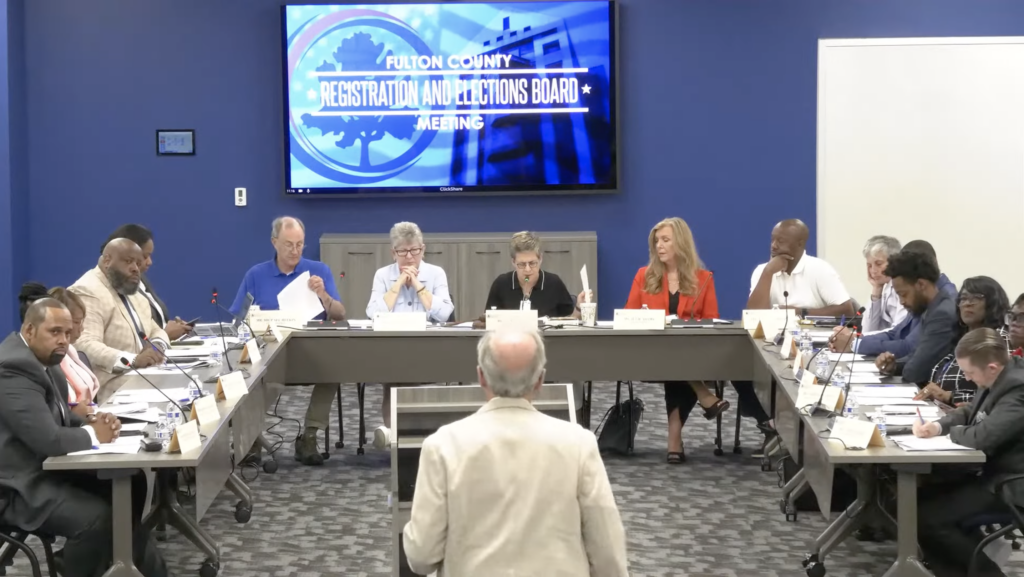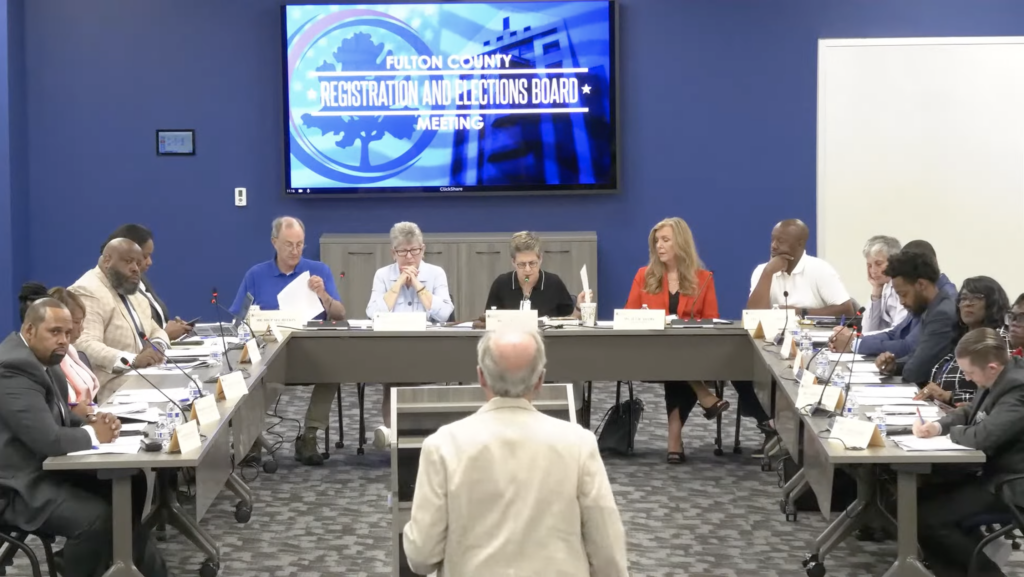Originally Authored at TheFederalist.com

A Georgia judge dismissed a plea from a Fulton County election official who asked the court to confirm she is not obligated to rubber-stamp election results after Democrats threatened her with criminal charges.
Fulton County Board of Registration and Elections (FCBRE) member Julie Adams filed a suit in May seeking clarification about her role after she was legally threatened by the Democratic Party of Georgia for not certifying the results of the March presidential preference primary. Adams alleges she was within her right to refuse to certify the results of the primary after she was allegedly “denied … access to essential election materials and processes.”
Judge Robert C.I. McBurney dismissed the challenge on Monday, ruling that Adams made a procedural error in her filing but left the door open for Adams to refile her suit.
“Plaintiff’s claims are not forfeited; they are merely dismissed — for now. This action is done, but there can be another. Plaintiff can refile, name the correct party, and we will pick up where we left off, likely with all the same lawyers and certainly with the same substantive arguments,” McBurney ruled.
“If Plaintiff moves with alacrity, the merits of her claim that the role of an election superintendent — in particular when certifying the results of an election — is discretionary rather than ministerial can still be considered alongside the related claims set forth in Abhiraman et al. v. State Board of Elections … . This may seem like an unnecessary drill, but it was also an entirely unavoidable one,” the ruling continued.
Adams requested access to election-related material like the county’s qualified voter list and absentee ballot records before certifying the presidential preference primary earlier this year. Adams alleges she was denied access, and without that material, she did not vote to certify the election. But the Democrat Party of Georgia sent a letter to Adams and the rest of the board ten days later threatening that criminal charges could be levied against board members who do not certify the results.
“Ultimately, if a member of the Board of Elections either ‘willfully neglects’ or ‘refuses to perform’ their statutory obligations, they ‘shall be guilty of a misdemeanor,’” the letter warned, citing O.C.G.A. § 21-2-596.
Adams filed a complaint asking the court to confirm her role in certifying elections is discretionary — meaning members can choose whether to certify the results if they are confident the election was administered lawfully — rather than ministerial — which means she and other members must rubber-stamp the results despite any concerns.
Adams also alleged she was prevented from “performing her statutory duties as a BRE member” after “access to essential election materials and processes by which elections in Fulton County are conducted” was allegedly withheld by the FCBRE and its director, Nadine Williams.
Adams argued that the Authorization Act gives the BRE members “the powers and duties of the election superintendent relating to the conduct of primaries and elections.”
State statute stipulates that the superintendent has the power to “inspect systematically and thoroughly the conduct of primaries and elections.” The suit further contends that state statute says superintendents “shall compare the registration figure with the certificates returned by the poll officers.”
Adams also argues that Fulton County Local Act § 14-32, “[c]onsistent with the Authorization Act,” vests the BRE with the “powers and duties of the election superintendent of Fulton County relating to the conduct of elections and the powers and duties of the board of registrars relating to the registration of voters and absentee balloting procedures.”
It is unclear whether Adams will refile her suit, and if she does, whether the issue will be remedied before Election Day.
The Georgia State Election Board (SEB), however, recently approved a series of rules aimed at ensuring election results are accurate before they are certified.
One rule (Rule 183-1-12-.02) clarifies that county election board members can fulfill their responsibility to certify an election “after reasonable inquiry that the tabulation and canvassing of the election are complete and accurate and that the results are a true and accurate accounting of all votes cast in that election.”
Another rule (Rule 183-1-12-.12) permits, in part, board members to review “all election related documentation created during the conduct of elections prior to certification of results.”
For more election news and updates, visit electionbriefing.com.
Brianna Lyman is an elections correspondent at The Federalist. Brianna graduated from Fordham University with a degree in International Political Economy. Her work has been featured on Newsmax, Fox News, Fox Business and RealClearPolitics. Follow Brianna on X: @briannalyman2
